-
Nuclear terrorism is a preventable catastrophe
Graham Allison, a nuclear proliferation expert, warns of the seriousness of the threat of nuclear terrorism and the ease with which rogue states or terrorists groups can obtain weapons or fissile material and the knowledge essential to developing production capability; “The number of rogue states and terrorist groups seeking to acquire nuclear weapons is increasing. There are a number of states willing to sell it to anyone, and a larger number of sites where enriched weapons grade plutonium and uranium can be found in conditions where they might be vulnerable to theft due to lack of security,” he says
-
-
U.S. and Israel were behind Stuxnet claims expert
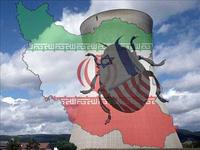
Stuxnet first came to light in July 2010. Nearly 60 percent of reported infections were inside Iran; the worm targets industrial control systems, known as programmable logic controllers (PLCs), made by Siemens; Ralph Langner told a conference in California that the malicious software was designed to cripple systems that could help build an Iranian bomb; in a recent report on Stuxnet, the security firm Symantec said that it would have taken a team of between five and ten developers, six months to create the worm; Langner said that the project would have required “inside information”, so detailed that “they probably knew the shoe size of the operator.”
-
-
Rebels reject talks unless Gaddafi goes
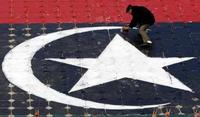
Rebels in eastern Libya have said they will not negotiate unless Col. Muammar Gaddafi quits and goes into exile; the National Libyan Council in the city of Benghazi also called again for foreign intervention to stop government air raids against the rebels; the International Criminal Court meanwhile said it would investigate Col. Gaddafi and some of his sons for crimes against humanity; President Barack Obama repeated his demand that the embattled ruler resign
-
-
In a setback, Iran unloads nuclear fuel from Busheher reactor
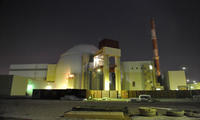
Iran announced Saturday it was unloading nuclear fuel from the Bushehr reactor, signaling more problems for the Russian-built plant after decades of delay; a source close to the project said the fuel was being unloaded on the suspicion that metal particles from nearly 30-year old equipment used in the construction of reactor core had contaminated the fuel; a senior Iranian official said earlier this month that suggestions should be investigated that the Stuxnet computer worm, believed to have been an attempt by Iran’s enemies to sabotage the nuclear program, had caused harm to the 1,000 megawatt Bushehr reactor
-
-
No, a Boy Scout cannot build a backyard nuclear reactor
Dirty bombs are easy to build and only require strapping explosives to radioactive material; in counter-terrorism circles there is a myth that in 1995 a Boy Scout was able to assemble enough radioactive materials to build a nuclear reactor in his backyard in Michigan by gathering all of his materials from common household items; he dismantled lanterns to obtain Thorium, smoke detectors for Americium, and old clock dials for Radium; analysts say that it would take material from roughly two million smoke detectors to build a dirty bomb that would cause any damage
-
-
The past as prologue: The Galant affair
On Monday, General Benny Ganz replaced General Gabi Ashkenazi as the IDF chief of staff; in the four months leading to Ganz’s appointment Israel witnessed a bitter fight over the government’s preferred candidate, General Yoav Galant; pragmatists in the higher echelons of Israel national security establishment resolved to do all they can to prevent Galant, a hawk’s hawk, from becoming chief of staff; the pragmatists’ main worry: the moderate Ashkenazi served as a break on the government’s more hawkish tendencies, and they were afraid that Galant would only reinforce these tendencies, leading to an unnecessary attack on Iran; the pragmatists succeeded, and Galant’s nomination was killed, but it now appears that the more moderate elements in Israel’s defense establishment took extreme measures — including forging documents — to achieve their goal
-
-
Japan and U.S. agree on nuclear counterterrorism road map
Japan and the United States are preparing a “road map” for cooperative efforts to prevent atomic site workers from stealing potential ingredients for an act of nuclear terrorism; the plan would also address the development of “security-by-design concepts” for facilities such as nuclear energy stations and atomic fuel processing sites
-
-
DHS border security searches of electronics questioned
Debate continues over DHS’s search and confiscation of materials at international U.S. borders; the latest case to make the headlines is that of David House, 23, an MIT researcher whose laptop, flash drives, and cameras were confiscated at the U.S.-Mexico border by DHS on his way back into the United States after a vacation in Mexico; House writes in a blog post that he is one of few individuals who are able to visit Manning in his detention facility in Quantico, Virginia
-
-
Stuxnet may turn Bushehr into a new Chernobyl
The destructive Stuxnet virus infected some 45,000 industrial control computers and servers in Iran; it destroyed more than 20 percent of Iran’s centrifuges, and, on 16 November, forced Iran to shut down uranium enrichment operations; it also infected the control system of the Bushehr reactor; Stuxnet is a sophisticated virus: while doing its destructive work, it makes sure that control computers continue to display “normal” operational information; one Russian expert described how engineers at Bushehr “saw on their screens that the systems were functioning normally, when in fact they were running out of control”; a new intelligence report says that with control systems disabled by the virus, an accident in the reactor is likely — an accident which would have the force of a “small nuclear bomb”
-
-
In Illinois, you could go to prison for using your Blackberry
Illinois is one of twelve states with “two-party consent” eavesdropping laws on the books; audio recording a civilian in Illinois is a felony with up to three years in prison the first time you do it and up to five years if you do it again; the penalties are much stiffer, though, if you record certain people: audio-recording a law-enforcement officer, state’s attorney, assistant state’s attorney, attorney general, assistant attorney general, or judge in the performance of his or her duties is a Class 1 felony, punishable by up to fifteen years in prison
-
-
Weekend nuke talks with Iran run aground
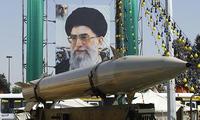
A weekend meeting in Istanbul between Iran and six world powers about the future of Iran’s nuclear weapons program ended in an impasse; Iran insisted that any talks should be preceded by the lifting of the UN sanctions on Iran — but the United States, Russia, China, Britain, France, and Germany were in lock step in their opposition to Iran’s proposed conditions; the group’s unanimity could enhance prospects for a broad international agreement on future sanctions or other punitive measures to force concessions from Iran in the future; the six powers offered Iran a revamped version of last year’s Tehran Research Reactor proposal, in which France and Russia agreed to provide Iran with much-needed fuel rods for a medical research reactor if Iran would part with a large chunk of its stockpile of enriched uranium; such a deal would have left Iran with less than the minimum amount of nuclear fuel needed to make a single atomic bomb
-
-
Israel, with U.S. help, tested Stuxnet at Dimona before attacking Iran
The New York Times quoted intelligence and military experts to say that U.S. and Israeli intelligence services collaborated to develop a destructive computer worm to sabotage Iran’s efforts to make a nuclear bomb; the Stuxnet computer worm shut down a fifth of Iran’s nuclear centrifuges in November and helped delay its ability to make its first nuclear weapons; before using Stuxnet to attack Iran’s nuclear program, Israel has tested the effectiveness of the malware at the heavily guarded Dimona complex in the Negev desert which houses Israel’s undeclared — and the Middle East’s sole — nuclear weapons program
-
-
Iran: Mossad targeting scientists
Iran says it has arrested members of a an Israeli spy network responsible for targeting Iranian nuclear scientists; Israel has a history of killing nuclear scientists of neighboring states embarking on nuclear weapons programs — this was the case with Egyptian scientists and their European helpers in the early 1960s, and with Iraqi scientists in the 1980s; the assassination of a dozen or so leading Iranian nuclear scientists has also been linked to the Mossad
-
-
Geologists develop way to monitor covert nuclear tests in the Middle East
Not only is it difficult to identify exactly where an explosion takes place, but it is especially challenging to differentiate the seismic waves generated by nuclear explosions from those generated by earthquakes, volcanic activity, and mine collapses; geologists develop improved seismic model for monitoring nuclear explosions in Middle East
-
-
Experts: Iran's threat to kill U.S. generals is serious
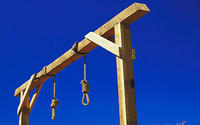
Iran’s anger at the massive blow the Stuxnet malware has inflicted on its nuclear weapons program boils over; the commander of Iran’s Revolutionary Guard, Gen. Mohammad Reza Naghdi, threatened that American generals will be targeted and killed in revenge for last week’s attacks on two of Iran’s leading nuclear scientists; Iran and Middle East experts say that Iran often makes outlandish threats, but that this one has to be taken as a serious and credible threat because it came directly from Naghdi; the most likely place for an attack to occur would be Iraq, and any attack would most likely be carried out by surrogates working for the Iranian Revolutionary Guard; Bahrain, Qatar, and other Gulf states would also allow the Iranian general to carry out the threat
-
- All
- Regional
- Water
- Biometrics
- Borders/Immig
- Business
- Cybersecurity
- Detection
- Disasters
- Government
- Infrastructure
- International
- Public health
- Public Safety
- Communication interoperabillity
- Emergency services
- Emergency medical services
- Fire
- First response
- IEDs
- Law Enforcement
- Law Enforcement Technology
- Military technology
- Nonlethal weapons
- Nuclear weapons
- Personal protection equipment
- Police
- Notification /alert systems
- Situational awareness
- Weapons systems
- Sci-Tech
- Sector Reports
- Surveillance
- Transportation
Advertising & Marketing: advertise@newswirepubs.com
Editorial: editor@newswirepubs.com
General: info@newswirepubs.com
2010-2011 © News Wire Publications, LLC News Wire Publications, LLC
220 Old Country Road | Suite 200 | Mineola | New York | 11501
Permissions and Policies
Editorial: editor@newswirepubs.com
General: info@newswirepubs.com
2010-2011 © News Wire Publications, LLC News Wire Publications, LLC
220 Old Country Road | Suite 200 | Mineola | New York | 11501
Permissions and Policies
